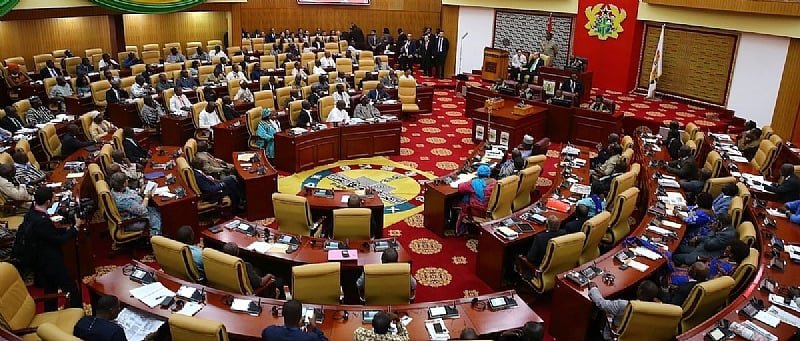Mr Augustus Obuadum Tanoh, Presidential Advisor for the 24-Hour Economy Secretariat, has given the assurance that the 24-Hour Economy Policy document will be presented to Parliament after its unveiling on July 2, for comprehensive debate by members of Parliament.
That, he believed, would enable legislators from both side of the aisle to make inputs into the policy to ensure its holistic and seamless implementation.
“We need to debate the content of the programme to justify the creation of an Authority. So, it is inevitable that it is going to happen,” Mr Tanoh stated.
This follows a proposal made by Speaker of Parliament Alban Bagbin recently that the 24-Hour Policy document needed to be debated on the floor of Parliament to get the buy-in of parliamentarians to ensure the ownership of the policy by all Ghanaians, irrespective of one’s political inclinations.
Mr Tanoh made this known during a media encounter in Accra June 30, to solicit media support to disseminate information about the policy to the citizens.
President John Dramani Mahama is expected to officially launch the 24-Hour Economy Policy document on Wednesday, July 2, 2025.
It is envisaged that the flagship programme would create not less than 1.7 million jobs in the next four years to propel industrial transformation.
Mr Tanoh also stated that the 24-Hour Economy Secretariat would also be converted into an Authority to enhance its scope of operations and that would require parliamentary approval.
“There has been approval to convert the current 24-Hour Secretariat into an Authority. And of course, it will get to be passed by a parliamentary majority,” he added.
In his interactions with the media, Mr Tanoh said government has envisaged to mobilise four billion US dollars in the next four years from development financial partners and institutions across the globe to ensure full-scale implementation of the programme.
The programme is designed to transform the economy and stimulate private sector participation to create jobs and ensure prosperity for all Ghanaians, he added.
The Government, he said, would provide an initial seed capital of $300 million to support businesses and individuals who would sign up onto the programme to ramp up production.
He said the programme had three key pillars including the Production Transformation, Supply Chain and Market Efficiency and Human Capital Development.
He said the three thematic pillars of the programme are supported by eight sub programmes including Grow 24, Make 24, Connect 24, Show Ghana, Go Ghana, Digital Technology, and Aspire 24.
Mr Tanoh indicated that government drew lessons from previous governments’ development initiatives including Osagyefo Dr Kwame Nkrumah’s seven-year development plan, Savannah Development Authority (SADA) and the National Development Planning Commission’s 40-year development plan.
Mr Abdul-Nasser Suglo Alidu, the Head of Strategy and Programme at the 24-Hour Economy Secretariat, in a presentation on the policy, highlighted the various sub programmes, noting that the programme was designed to transform production with agriculture as its main anchor to ensure food sufficiency.
It was also intended to develop the country’s value chain to achieve greater productivity and expand output in the industries to enhance food self-sufficiency and promote export-driven economy, Mr Abdul-Nasser explained.
For instance, he indicated that the ‘Make 24’ component was meant to boost manufacturing of goods and services, while the ‘Aspire 24’ was intended to change the mind-set of Ghanaian workers and minimise the bureaucratic bottlenecks in the public sector to aid in changing attitudes of the citizens for optimal productivity.
The ‘Show Ghana’ component for instance, was to showcase the rich diverse cultural identity of the Ghanaian people and connect with the diasporan community to promote tourism.
The ‘Go Ghana’ initiative was meant to mobilise the citizens to build a prosperous nation while the ‘Made-in-Ghana’ component meant to promote local manufacturing of goods and encourage Ghanaians to patronise domestically manufactured items.
Mr Abdul-Nasser stated that the programme would also roll-out the Volta Economic Corridor where there would be industrial parks, agro ecological parks and lake transportation on the Volta Lake to boost socio-economic development within the enclave.
Mr Abdul-Nasser said the programme has a national character and designed to utilise the human resource capacity and ingenuity of Ghanaians to accelerate socio-economic transformation and create jobs.
He cited Singapore, Malaysia, China and Denmark, which in the past implemented similar initiatives and believed that very soon Ghana would become a model of industrial transformation in West Africa and Africa at large.
GNA


